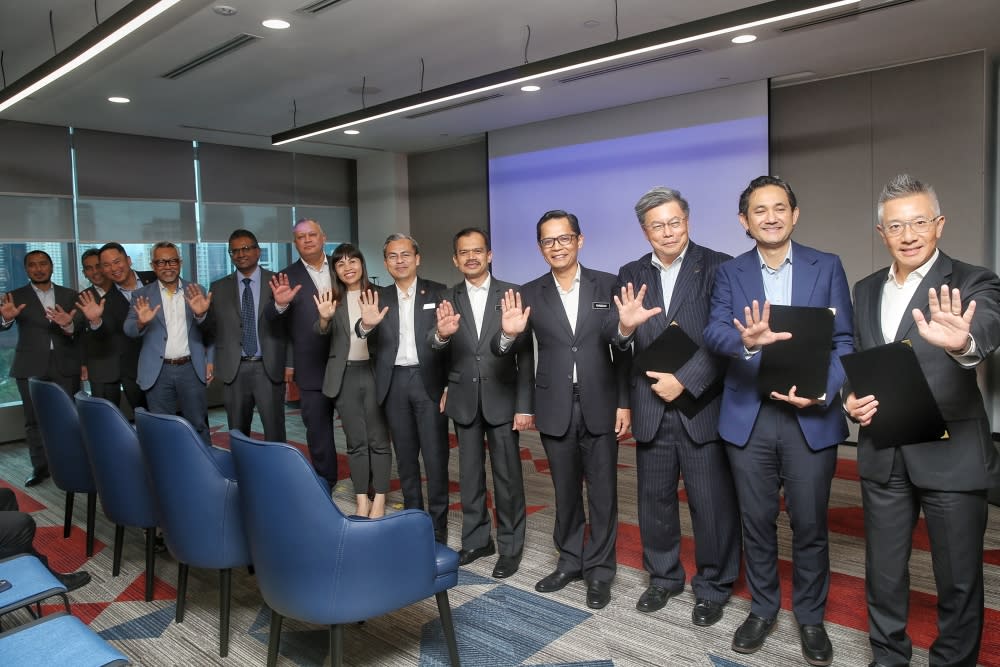Mobile network operators finally sign contract with DNB after prolonged face-off

KUALA LUMPUR, Dec 1 — The five major mobile network operators (MNO) this evening signed the share subscription agreement (SSA) that would see each hold a 14 per cent of stake in Digital Nasional Berhad (DNB) after more than a year of tense negotiations that nearly thwarted the RM16 billion enterprise.
The signing, witnessed by Communications and Digital Minister Fahmi Fadzil at DNB’s new office in the glitzy TRX Exchange 106 tower here, would give the MNOs 70 per cent of the entity’s share, with the lion’s portion remaining in the hands of the Ministry of Finance.
Also present was Fahmi’s deputy Teo Nie Ching.
“The execution of the SSAs by the MNOs marked a significant achievement by the Task Force for the Implementation of 5G dual network in Malaysia,” the company said in a statement released at the launch.
Commenting on the signing, Fahmi described the agreement as a “historic moment”.
“Rarely do we see CEOs sit together at one table despite their disagreement,” the minister said in a brief speech delivered after the signing.
The agreement between DNB and the MNOs would likely help allay concerns about corporate interest taking over DNB’s mandate to make the fifth-generation high-speed internet a public utility, at least temporarily.
The Anwar government earlier this year agreed to the setting up of a second purely commercial entity that would help develop a second 5G network in a decision widely seen as a compromise after MNOs had threatened to boycott signing up for DNB shares.
Channel News Asia quoting sources as saying that MNOs likely agreed to the DNB share take up because they are allowed to form the second entity, among other conditions.
Work to develop a second network via the new entity will only be allowed to begin after DNB has achieved 80 per cent coverage, Fahmi said.
DNB’s current 5G coverage is about 73 per cent.
To cover some of DNB’s cost to develop the 5G network, each MNO will inject RM230 million to meet the state entity’s funding requirements.



